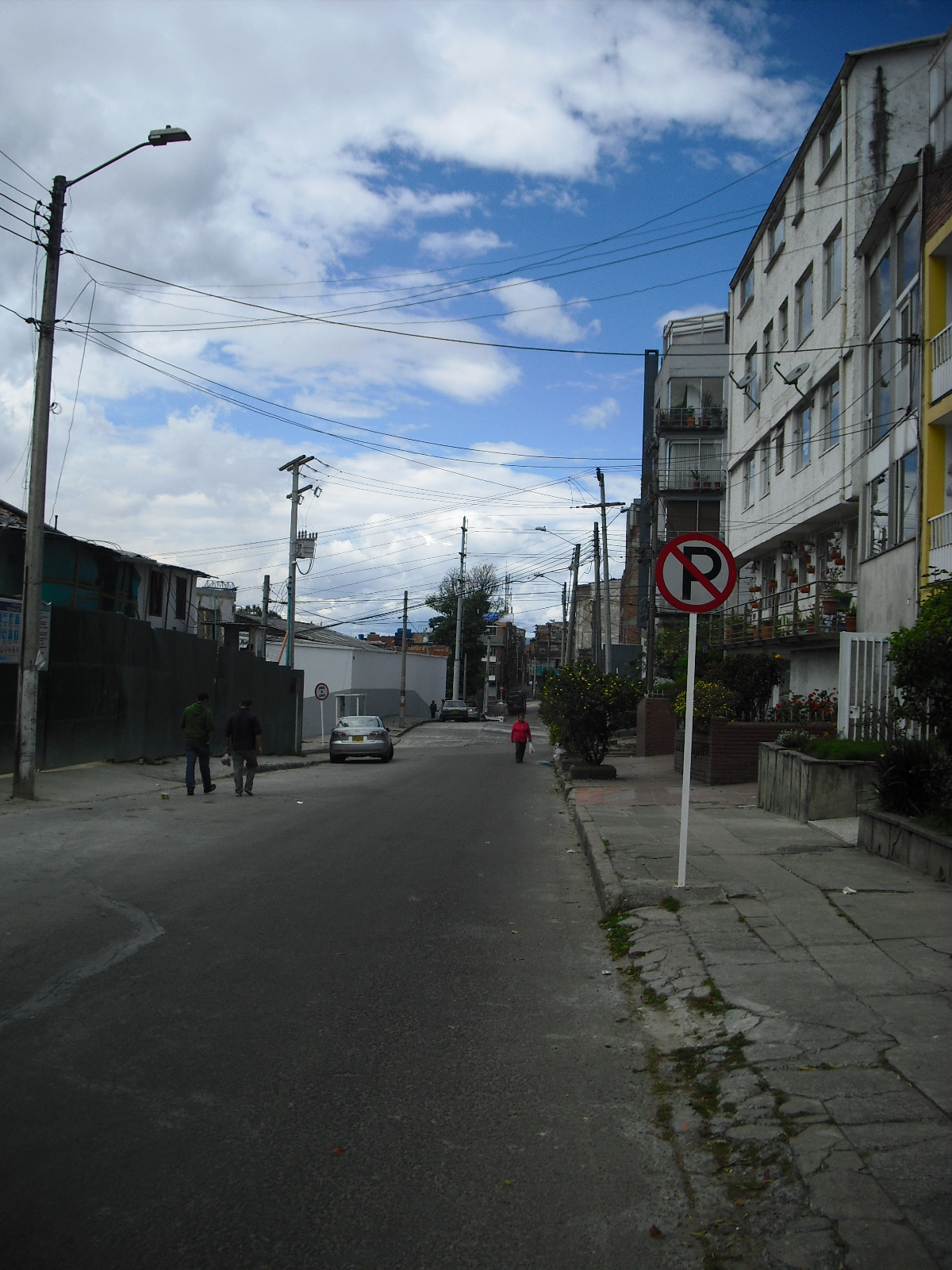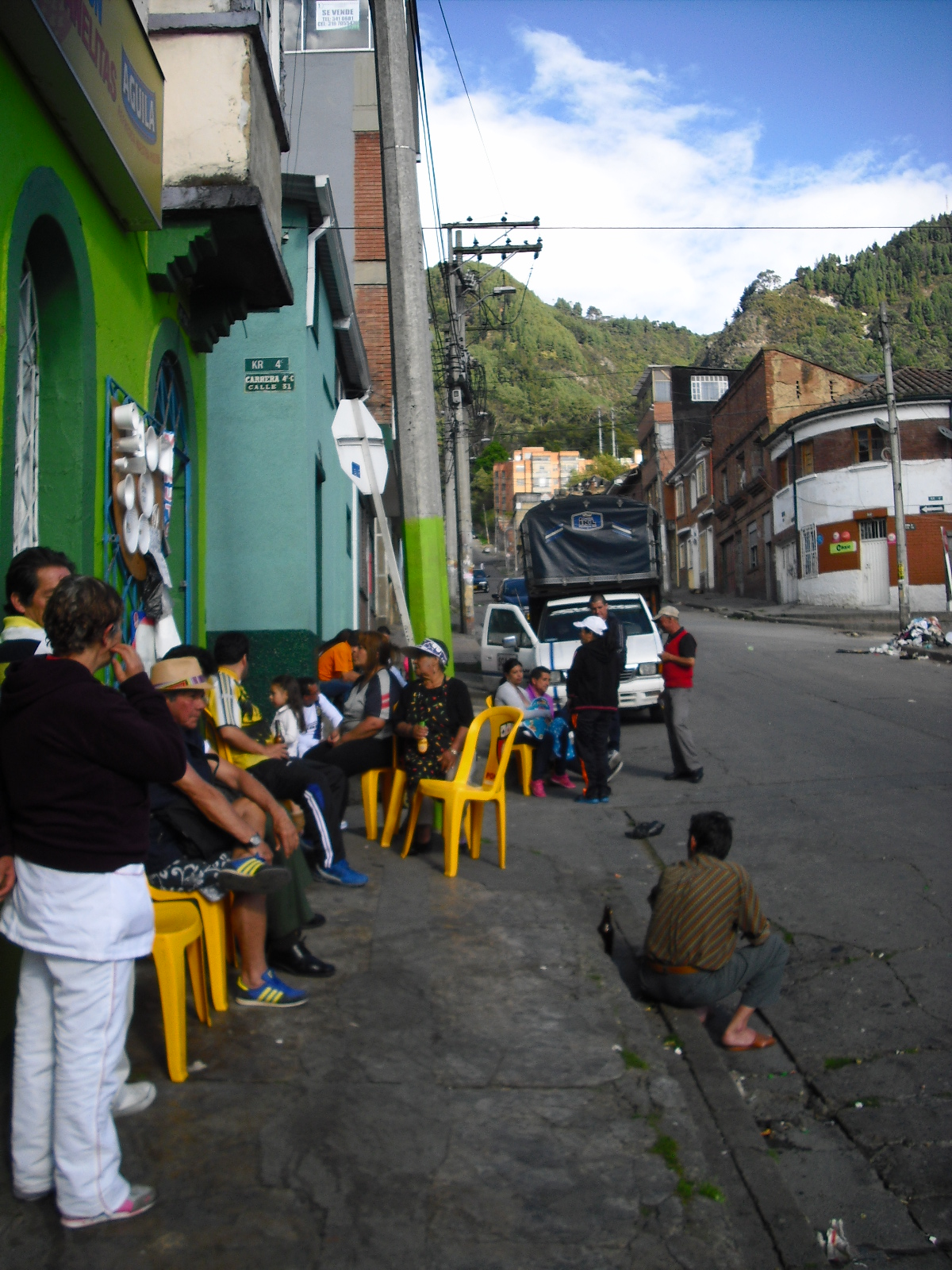Ingresa o regístrate acá para seguir este blog.
@radiobrendan
Colombia’s unique strata system has been under the spotlight of late. To the uninitiated, this basically divides the population into ‘rich’ and ‘poor’ according to the area they live in, not by the actual living standards of each individual or family.

“You are now entering ‘Free La Perseverancia’.” The thin line between a stratum four and a stratum two. You’ll generally find Wrong Way in the latter.
The system ranges from one, the poorest, to six, the richest. The overall idea is that people living in the lower strata pay less for everyday utilities such as water and electricity, subsidised in part by the higher service charges paid by the other strata.
Areas are judged and numbered according to general housing characteristics such as a garage, a front yard and the quality of the neighbourhood. So, as you’d expect, on the whole the wealthier, that is to say the minority of Colombians, live in the upper strata, with the working- and lower-class majority living in strata one, two and three.
Thus, you could say, the system is fit for purpose: Those who can pay more in terms of services, do.
However, there are obvious flaws; hence the calls to do away with it are growing stronger.
For one, you can find relatively wealthy people living in the lower strata, while it’s not always a given that those based in the more affluent parts are ‘flush’.
Also, many rural areas have a low ranking, presumably because of distance from everyday services, yet you can find pockets of wealthy inhabitants in the Colombian countryside, especially on the outskirts of cities.
Then you have the social stigma that comes with being from strata one and two, or even three, depending on your outlook. While outwardly some universities and employers may say it’s not an issue, in a country that pays too much attention to status and background, the reality is different.
Taking the above into account, a more personalised approach into how people are socially assessed – that is to say the international standard – would seem a fairer way of doing things.
Of course assessing the needs of the population is one thing; actually providing aid and support where it’s required most is another matter altogether.
What’s more, getting rid of stratification won’t, obviously, see the lot improve automatically for poorer areas. The rough-and-ready, simple-and-satisfying qualities of my beloved La Perseverancia (La Perse for short), a stratum two in Bogotá, won’t go away in a hurry. In any case, from a personal point of view, I don’t want to see too much change there.
Yet those living in La Perseverancia and its ilk practically operate in a different world compared to the wealthier parts.
Yes, there are clearly demarcated rich and poor areas across the globe, there’s nothing surprising in that. However, the difference between the haves and the have nots in Colombia seems particularly pronounced.
For example, looking at socialising in Bogotá, the kind of prices you pay for a night out in the fancier barrios are multiples of those in the ‘majority’ (as in where most of the city’s inhabitants live and operate) neighbourhoods. And you’re paying for basically the same products, but with – a lot of the time – a less personal, poorer service. Plus the richer parts are not always safer or more aesthetically pleasing, as they claim to be.
These huge price differences are something that could, potentially, be reined in with an end to stratification. Now that would, or should, be more a case of pruning the excesses at the top rather than cutting from the bottom.
In the meantime, I’ll continue the ‘keeping up with La Perse’ strategy, dabbling only very occasionally into the world of the ‘other’ five per cent.
__________________________
For somewhat related pieces, see In defence of hoping (and fighting) for, at least, a ‘Freer Bogotá’ and Budget Bogotá.
Facebook: Wrong Way Corrigan – The Blog.




